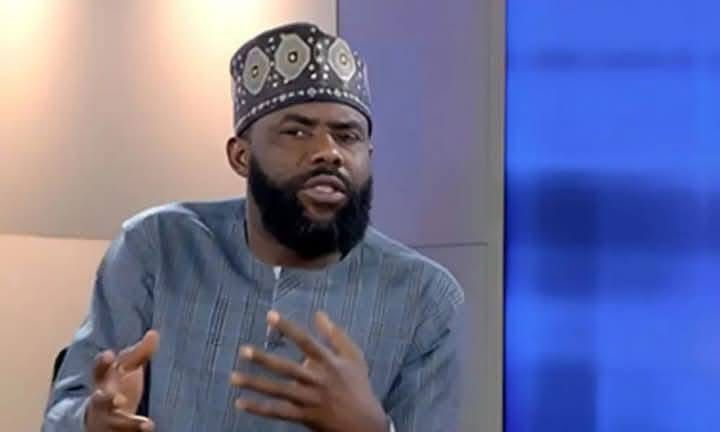Aliyu Audu, the former Senior Special Adviser to President Bola Tinubu on Public Affairs, announced his resignation from the administration on June 8, 2025, citing irreconcilable differences with the political direction of the All Progressives Congress (APC)-led government. In a detailed statement released to the press, Audu revealed his intention to actively work against President Tinubu’s re-election bid in 2027, emphasizing his commitment to safeguarding Nigeria’s democratic principles. His departure marks a significant development in the ongoing political discourse surrounding the Tinubu administration as the 2027 general elections loom.
Audu’s resignation letter, addressed to President Tinubu through Chief of Staff Femi Gbajabiamila, outlined his concerns about what he described as the administration’s drift toward establishing a one-party state. He specifically criticized an “unholy alliance” between Tinubu and Nyesom Wike, the Minister of the Federal Capital Territory and a former stalwart of the opposition Peoples Democratic Party (PDP). Audu argued that this partnership undermines the progressive ideals of the APC and threatens the pluralistic nature of Nigerian democracy.
In his public statements, Audu clarified that his resignation was not a defection to the PDP or any other opposition party but a principled stand against policies he believes erode democratic norms. He expressed support for Tinubu’s economic reforms, such as efforts to stabilize the naira and improve infrastructure, but maintained that these achievements were overshadowed by political maneuvers aimed at suppressing dissent. Audu drew parallels to the authoritarian tendencies observed during former President Olusegun Obasanjo’s tenure in 2003, warning that silencing opposition voices could lead Nigeria down a dangerous path.
The former adviser’s decision to resign was also influenced by what he perceived as the APC’s intolerance of internal criticism. Audu noted that his attempts to raise concerns about the administration’s political strategy were met with resistance, prompting him to conclude that he could not remain in his role while planning to oppose Tinubu’s re-election. His exit follows that of Hakeem Baba-Ahmed, another senior aide who resigned earlier in 2025, signaling potential cracks within the administration’s inner circle.
Audu’s announcement has generated significant attention on social media where users have debated the implications of his resignation for the APC’s unity and Tinubu’s political future. Some posts praised Audu’s courage in taking a stand against what they view as authoritarian tendencies, while others criticized him for abandoning the administration at a critical juncture. Media outlets, including Channels TV, reported on June 16, 2025, that Audu’s statements reflect broader concerns about the APC’s strategy to consolidate power ahead of the 2027 elections.
The former aide’s critique of the Tinubu-Wike alliance has also reignited discussions about Wike’s role in the APC-led government. Wike, a prominent figure in Rivers State politics, has been a controversial addition to Tinubu’s cabinet due to his PDP background and ongoing rivalries with other political figures in the South-South region. Audu argued that this alliance prioritizes political expediency over ideological coherence, alienating core APC supporters who value the party’s progressive roots.
Despite his resignation, Audu emphasized that his opposition to Tinubu’s re-election would be conducted within the bounds of democratic engagement. He stated his intention to collaborate with like-minded Nigerians to promote a vibrant multiparty system and ensure that the 2027 elections reflect the will of the people. Audu also called for greater transparency in governance and urged the administration to address public concerns about rising inflation and insecurity, which he acknowledged as challenges inherited from previous governments.
The presidency has yet to issue an official response to Audu’s resignation or his allegations, leaving observers to speculate about the administration’s next steps. Political analysts suggest that Audu’s departure could embolden other critics within the APC to voice their concerns, potentially complicating Tinubu’s efforts to maintain party cohesion. The timing of the resignation, less than two years before the 2027 elections, underscores the high stakes involved as political actors begin to position themselves for the upcoming contest.
Audu’s background as a seasoned public affairs strategist adds weight to his critique of the administration. Prior to his appointment in 2023, he served in various communication roles within the APC, contributing to Tinubu’s successful presidential campaign. His decision to publicly oppose the president represents a rare instance of a former insider breaking ranks, highlighting the tensions between personal loyalty and ideological conviction.
The coming months will likely see increased scrutiny of the Tinubu administration’s political strategy, particularly its handling of internal dissent and alliances with former opposition figures. Audu’s pledge to work against Tinubu’s re-election sets the stage for a contentious political battle, with implications for the APC’s ability to maintain its grip on power. For now, Audu’s resignation stands as a bold statement of principle in a political landscape marked by shifting loyalties and high-stakes maneuvering.




